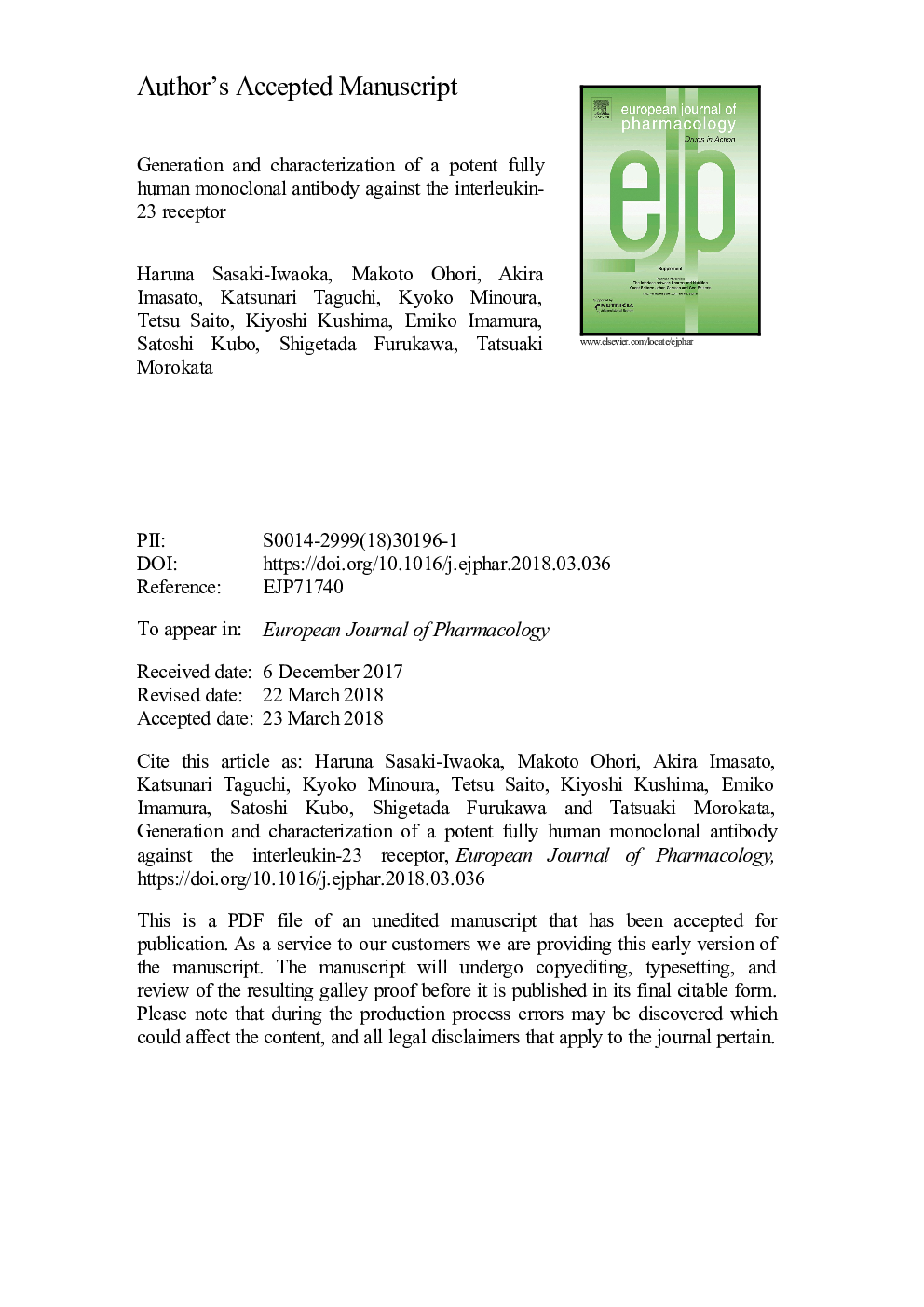| Article ID | Journal | Published Year | Pages | File Type |
|---|---|---|---|---|
| 8529115 | European Journal of Pharmacology | 2018 | 30 Pages |
Abstract
Interleukin (IL)-12 and IL-23 share a common subunit (p40) and function in T-helper (Th) 1 and Th17 immunity, respectively. Anti-IL-12/23p40 and specific anti-IL-23 antibodies are currently in clinical use for psoriasis and undergoing trials for autoimmune diseases. Since expression levels of the IL-23 receptor are likely to be much lower than those of IL-23, an anti-IL-23 receptor antibody might offer greater promise in inhibiting the IL-23-IL-17 pathways involved in inflammatory disorders. To our knowledge, no anti-IL-23 receptor antibody has been trialed in clinical studies to date. This study describes the generation and characterization of AS2762900-00, a fully human monoclonal antibody against the IL-23 receptor. AS2762900-00 bound both human and cynomolgus monkey IL-23 receptors. AS2762900-00 showed potent inhibitory effects on IL-23-induced Kit-225 cell proliferation compared to the existing anti-IL-12/23p40 antibody, ustekinumab. In a single dose administration pharmacodynamics study in cynomolgus monkeys, 1â¯mg/kg of AS2762900-00 significantly inhibited (> 85%) IL-23-induced STAT3 phosphorylation in blood for up to 84 days. Therefore, AS2762900-00 represents a potent novel IL-23-IL-17 pathway inhibitor with the potential to be developed into a new therapy for the treatment of autoimmune diseases.
Related Topics
Life Sciences
Neuroscience
Cellular and Molecular Neuroscience
Authors
Haruna Sasaki-Iwaoka, Makoto Ohori, Akira Imasato, Katsunari Taguchi, Kyoko Minoura, Tetsu Saito, Kiyoshi Kushima, Emiko Imamura, Satoshi Kubo, Shigetada Furukawa, Tatsuaki Morokata,
